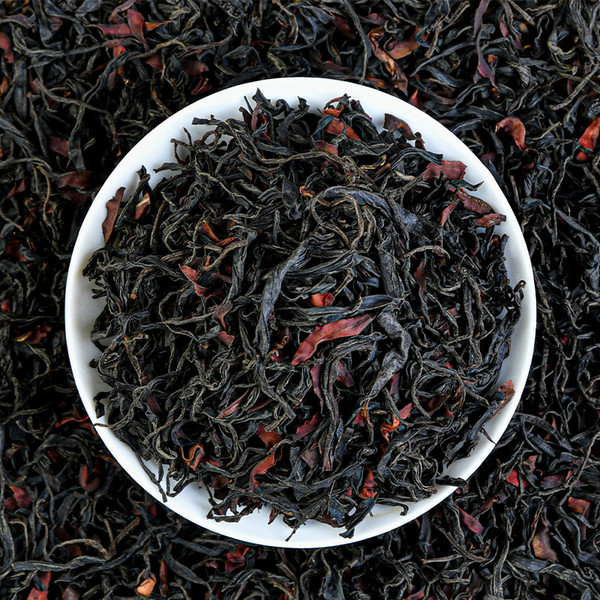Product Overview
Made exclusively from rare forest-grown ancient wild tree Zi Cha tea plants with purple leaves. This particular tea is made from a ‘Zi Cha’ or Purple Tea varietal. Zi Cha purple leaf varietal tea plant is a mutated version of Camellia sinensis var. assamica and is spread across Yunnan at high altitudes. The leaves of this breed have a distinctive purple and burgundy hue, caused by naturally occurring Anthocyanin in the cultivar. Anthocyanin is the chemical component that gives the purple color to blueberries and is known as a powerful source of antioxidants. However, only the youngest leaves will display distinctive coloration. The unusual color is darkest when young, fading to a more usual green as they mature. Due to the rarity of the purple bud varietal, black teas made from the purple bud varietal are precious and highly sought-after by tea connoisseurs.
When brewed, our Yunnan Purple Black Tea offers a naturally strong bitter-tasting flavor profile. Purple tea has a very distinct strong taste that is not comparable to others. The primary source of bitter flavors in the tea leaf is methylxanthines, a category of molecules that includes the natural stimulants in tea, like caffeine and theobromine. It is thought that these compounds act as a natural pest repellent in the growing tea plant. Early spring harvests, plucked while the weather is still cool, are generally sweeter. As the weather warms, and pest populations grow in the summer months, the mature leaves of the tea plant arm themselves with bitter flavors to deter attacks.
This tea has a very unique bitter-and-sweet taste and the cha qi is very strong but leaves a balanced and long-lasting sensation in the mouth and throat. It has a highly complex, lively liquor with a distinctive concoction of flavors ranging from eucalyptus, floral, and peach notes. Its flavor is powerful and complex. Bitterness is the feature of this wild tea.
Brewing Guide: Steep 3 grams with 500 ml of water at 80-90 °C. Apply a brewing time of 1-2 minutes and add 30 seconds for each next preparation.
If your goal in a cup of tea is to maximize caffeine or polyphenol content, a bitter cup may be just the thing you’re looking for. If you prefer During the brewing process, caffeine is one of the first compounds to be released from the tea leaves, and the longer the brew, the more caffeine will end up in your cup. If find it too strong, try changing the amount of tea used, cold steeping and a shorter brew.














